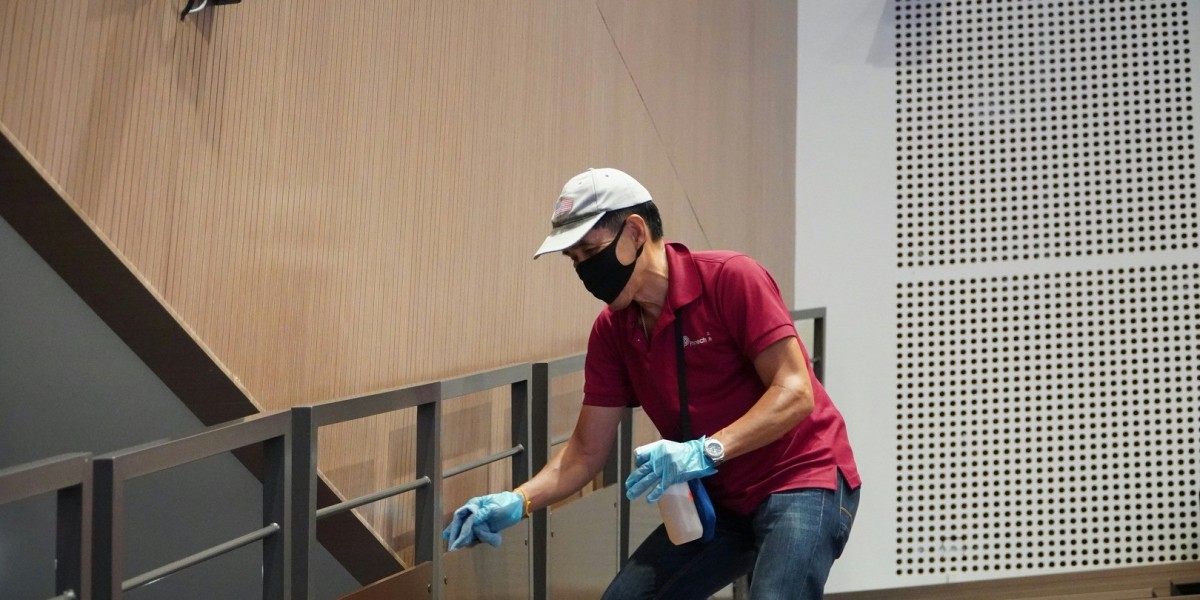Look, nobody wants to think about this. But sometimes, the unthinkable happens. An accident, a sudden death at home, violence... and afterward, there’s more than just shock and grief. There’s a physical space that needs care most of us aren't equipped – or emotionally ready – to handle.
That’s what crime scene cleanup is for. It’s not just cleaning. It’s about safety. It’s about dignity. It’s about giving people back a space that feels okay again, when things feel anything but okay. If you’re facing this right now, please hear this: needing this kind of help isn't weakness. It’s smart. It’s taking care of yourself and others.
Why Can't I Just Clean It Myself? (It's More Than a Stain)
Let’s be straight: cleaning up after something traumatic isn't like tackling a spilled soda. What’s left behind can be dangerous:
- Hidden Germs: Blood and other body fluids can carry serious illnesses like Hepatitis or HIV. You can’t see the risk, but it’s real.
- Really Tough Stuff: Things like tissue or fluids from decomposition need special handling. It’s not just dirt.
- Chemicals & Other Nasties: Sometimes there are leftover cleaners, drugs, or other hazardous things mixed in.
- The Heart Part: Trying to clean the place where something awful happened to someone you loved? That’s an incredibly heavy emotional weight to carry. It can make healing so much harder.
- Rules Are Rules: There are strict laws about how to handle and throw away this kind of waste. Getting it wrong isn't just messy; it can be illegal.
The folks who do this work? They get it. They’re not there out of curiosity. They’re there with training, respect, and the tools to handle what most of us shouldn't have to.
So, What Do They Actually Do? (Beyond the Bucket)
Imagine trying to clean your house after a disaster, but with invisible dangers everywhere, needing spacesuit-level gear and knowing exactly how to kill dangerous germs. That’s closer to it. Here’s how it usually goes down:
- Looking & Planning: They come in and carefully figure out what happened and where. They spot everything, even tiny splatters you’d miss. Then, they make a plan.
- Suiting Up (Seriously): They wear full-body suits, heavy-duty respirators (think gas masks, not dust masks), thick gloves, and boot covers. Safety isn't optional.
- Sealing the Area: They’ll often put up plastic walls to keep the mess contained and stop anything from spreading to other rooms.
- The Deep Clean:
- Taking Away the Bad Stuff: All the visible biohazard material (blood, fluids, tissues) gets carefully removed using special cleaners that actually kill the dangerous germs.
- Scrubbing Everything: They clean every surface – floors, walls, ceilings, furniture (if it can be saved), even places you wouldn't think of. They do it multiple times with powerful disinfectants that need time to work.
- Beating the Smell: Traumatic scenes often have strong, lingering odors. Crime Scene Cleanup Pros use machines like ozone generators to destroy the smell at its source, not just cover it up with air freshener.
- Sometimes, Taking Things Out: Contaminated carpet, padding, drywall, or even floorboards underneath often need to be safely cut out and thrown away properly. They know what has to go.
- Throwing It Out the Right Way: This is HUGE. All the dangerous waste goes into special, super-strong, clearly labeled containers (think bright red bags inside tough bins). It doesn’t go in your trash can. Licensed haulers take it to special places (like medical waste incinerators) to be destroyed, following all the strict rules. No shortcuts.
- Double-Checking (Sometimes): For extra peace of mind, they might test surfaces after cleaning to make absolutely sure they’re safe and germ-free.
Seriously, Why Call the Pros? (It's Not Just Convenience)
You might wonder, "Can't I just use a ton of bleach?" Honestly? No. And here's why:
- Your Health Matters: You shouldn’t risk touching things that could make you very sick. The pros have the gear and know-how to protect themselves.
- Bleach Isn't Always Enough: Regular cleaners often can't completely kill all the dangerous germs the right way. Professionals use industrial-strength stuff and proven methods.
- Protecting Your Heart: Cleaning that space yourself can be emotionally devastating. It’s a burden no one grieving should have to bear. Letting professionals handle the physical part gives you space to breathe and heal.
- Staying Legal: Messing up the disposal can land you in hot water with big fines. Pros know the rulebook backwards and are licensed and insured.
- They See What You Don't: They’re trained to find hidden contamination – tiny drops on the ceiling, stuff soaked into the floor, other hazards. They make sure nothingdangerous is left behind.
- It's About Making it Right Again: Their goal isn't just wiping surfaces. It’s making the space truly safe, clean, and livable again, which often means repairs and odor removal way beyond a basic clean.
What Happens When You Call? (They Know It's Hard)
Calling feels huge, but good companies make it as gentle as possible:
- The First Call: They answer 24/7. They’ll listen kindly and ask just enough basic questions to understand what help is needed. They know this is tough.
- Working Together: They coordinate quietly with you, family, or authorities to get access when everyone is ready. Discretion is key.
- Talking It Through: They communicate clearly and respectfully, without prying or sharing details. Your privacy matters.
- Dealing with Insurance: Often, homeowners or business insurance covers this. Many cleanup companies will talk directly to your insurance to sort out the details, taking that stress off you.
- The Cleanup Team: They arrive in unmarked vehicles, get suited up, and work efficiently and quietly. They focus on their job respectfully.
- When They Leave: They make sure the space is safe and give you paperwork showing the work done and that waste was disposed of properly (often needed for insurance).
Finding Good Help: What to Look For
Choose carefully. Ask about:
- Paperwork: Are they licensed? Certified (like by the IICRC for biohazard work)? Insured?
- Know-How: Do they have experience with situations like yours? What training do their team members have?
- Heart: Are they compassionate and respectful with regard to you since the first call? Do they put into consideration your feelings and privacy?
- Clear Talk: Do they tell it like it is (trying to close on a home), costs (particularly related to insurance), and timing (when do work and permits take place)?
A Delicate Reminder
The fact that one needs this service is an indication that something very difficult has occurred. There is nothing wrong with being overwhelmed. Seeking professional assistance is not a failure but the will of you being responsible to save yourself, your mind and the safety of the very space itself.
Those involved with crime scene cleanupwork know what it entails. They do not go to stare. It is with the sporting expertise, heavy-duty equipment, and a profound feeling of respect that they are there to bring one burden that is otherwise too much to bear by any other person. One of the things that you can do when it comes to taking care of yourself during the time that you needed it is by letting them help you.








